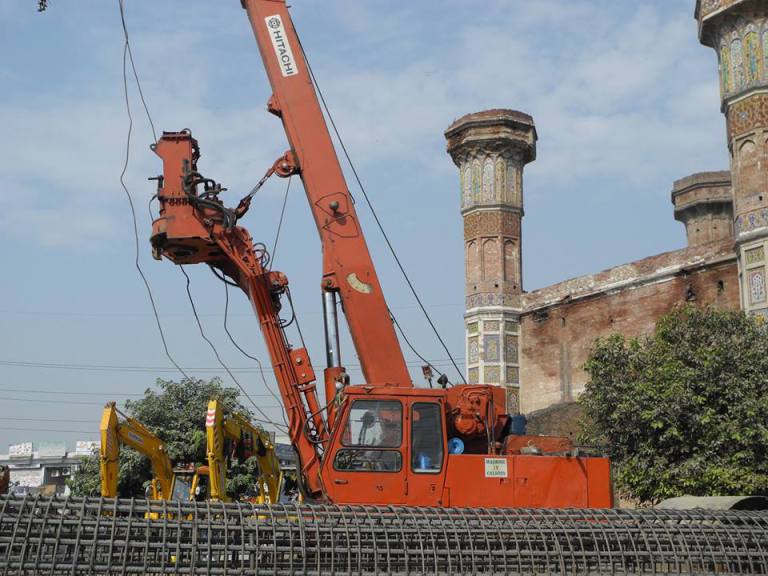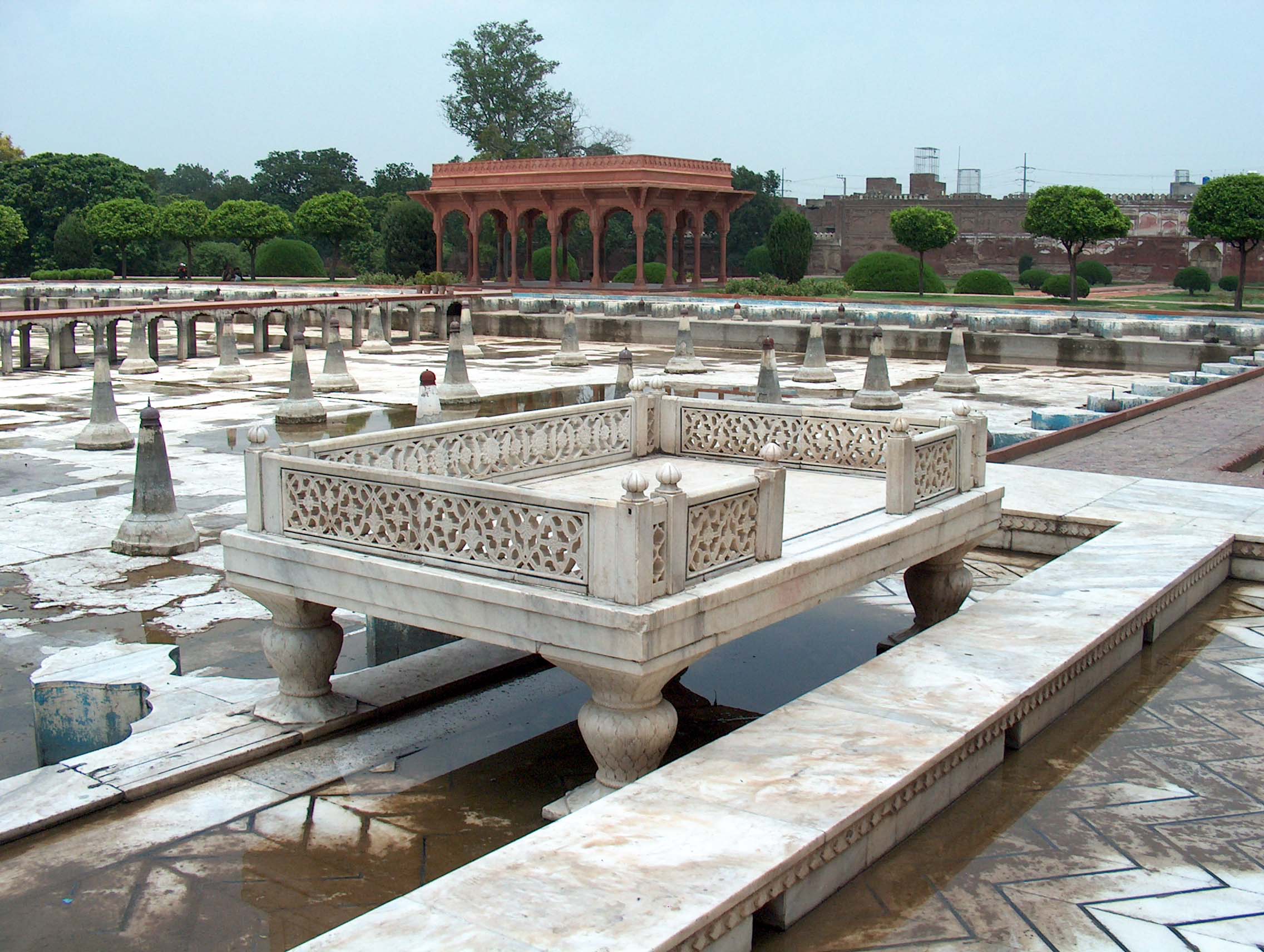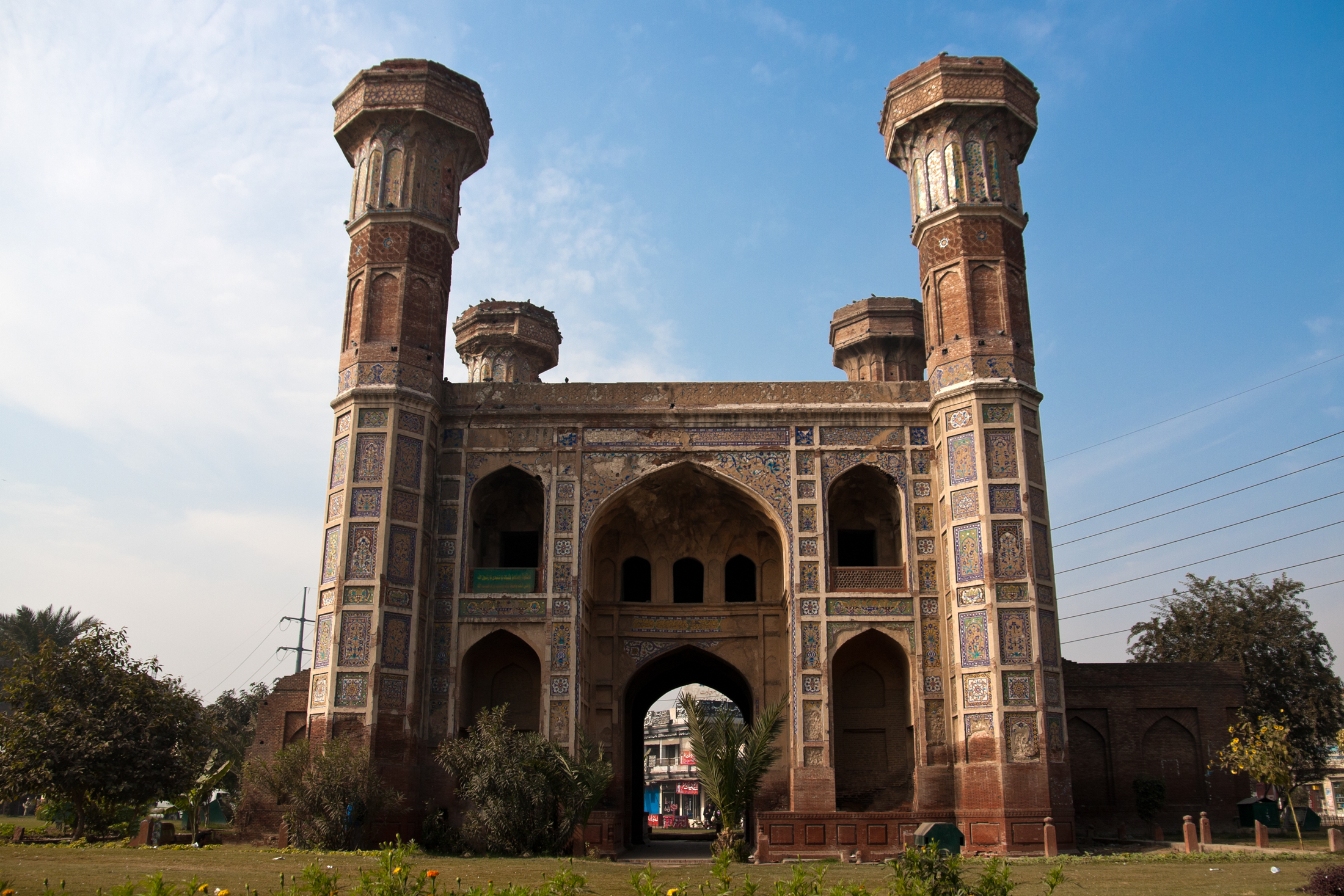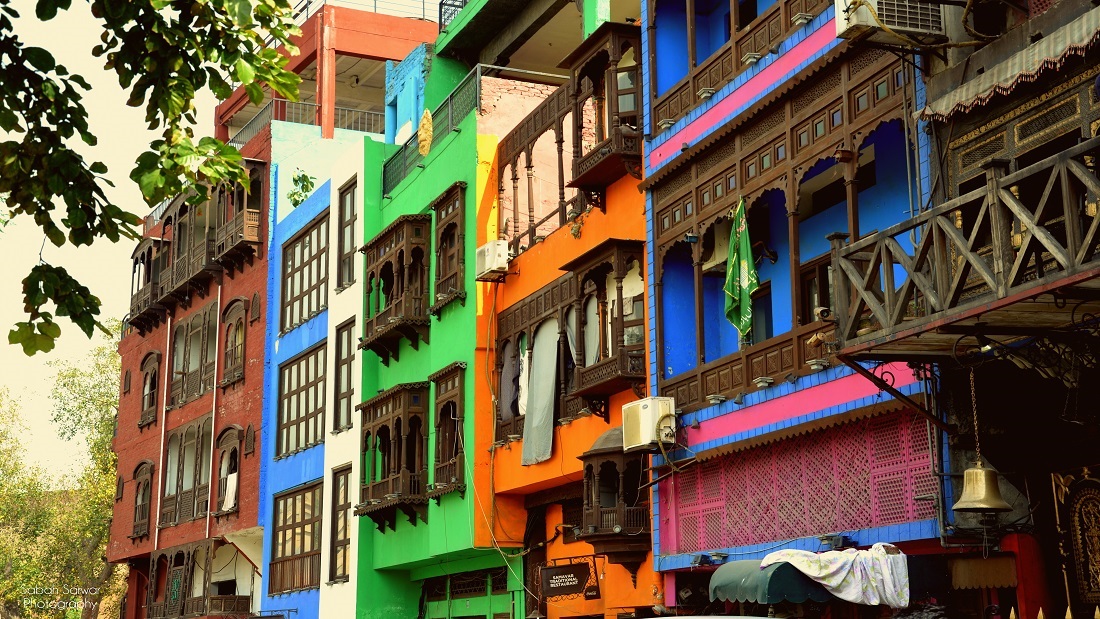The rapid growth witnessed in many parts of Asia and the isolated developments in Africa are often considered a major threat to the heritage of these regions. Many countries are thus faced with the contradictory needs to conserve their heritage and to strengthen their infrastructure and economic development. [Webber Ndoro]
How to deal with heritage in developing countries?

Being a national of developing Asian country (Pakistan) with rich tangible and intangible heritage, these question has always been on my mind.
Why the issues related to heritage have never been tackled seriously in the developing countries? Especially when the modern developments are the competitor of heritage? Why heritage is always on the losing side? Or to be more specific in terms of this blog post, why heritage conservation/preservation related movements do not succeed in their missions? I think these are not a YES or NO sort of questions. But by discussing a relevant example, we can unfold some complexed layers of a relevant scenario.
Let me rotate globe a bit for you and take you to the South Asia-Welcome to the Lahore. Lahore is considered as a cultural capital of Pakistan. A historic city whose fabric is weaved with so many diverse threads of cultural heritage. This city is about to acquire its first ever metro line. That’s a good news but not a complete one. As a result of this metro line construction, almost 5 major historic sites included in World heritage list are in severe danger of being demolished.
To protect what is left (because these buildings are already suffering a lot due to no proper care) the civil society of Lahore with some heritage professionals launched a campaign named as “LAHORE BACHAO Tehreek/Lahore conservation Movement”. The interesting part of this campaign was adopting the new hashtag trend #LahoreBachao while realizing the power of social media. Well, in this post I would discuss only those points which explain that why this movement despite adopting all the modern trends and inclusion of educated allies remained unsuccessful. This would also help me to reflect on one of the above-mentioned question “Why heritage is the least considered issue in parallel to the infrastructure developments in the developing countries?”

- Lack of Public awareness
Let’s talk about heritage from a commoner’s perspective? What happens when the heritage policies lack local public involvement? The ultimate level of disinterest! We need to address the root cause first. A common being would not be able to own his heritage IF he really does not know what this heritage actually mean for a society. To conserve the heritage either its tangible or intangible, one must know what he is actually conserving? The centuries-old building is just not a building, it’s a legacy which is being conserved. Giving a future with recognizable past is very important. To move forward, we must celebrate the past behind with pride. A bunch of starry-eyed do-gooders, under the banner of the Lahore Bachao Tehreek, are trying to raise their voice against the heritage vandalism due to Metro Line construction. But to make this movement successful, we must first bring awareness among locals.Teach them to embrace their glorious past with pride and save it for the future generations. Development is important but If it the Metro Line can adopt an alternative route then why not? By putting pressure on the government through locals’ voice is the best solution. But before that, we must start the campaigns for the public awareness.It is critically important to involve the indigenous people.Communities which were settled in the surrounding areas for centuries are now forced to evacuate their places. This forced evacuation is also critical for the cultural heritage.
In the following paragraphs, I would refer to some points through which not only the movements like Lahore Bachao can be made successful but we can also solve many issues linked with the heritage in developing countries.

-
What is my gain?
It’s a very common question which I always hear from my fellow nationals, Why do we need to preserve these buildings since they are not providing any base to the economy.Heritage is a burden that we must get rid of.Beleive me or not.That’s how heritage is being discussed in my country.That’s why public awareness is vital.
So after creating public awareness, it is immensely important to make heritage useful for the public and local authorities as well. Pakistan as a nation is still following the centuries-old heritage conservation/preservation laws made by the British during colonialism which mainly focused on the preservation of monumental attributes of heritage. The last amendment made in the antique law of Pakistan was in 1975. So my question to the Lahore Bachao Tehreek is that How can we expect to bring revolutionary change just by chanting slogans and displaying play cards? We must form a committee to review heritage policies and regulations. After public awareness, it’s the most important step to take.Otherwise, no matter how much campaigns we run, an ultimate loss would be waiting at our doorstep eventually.
-
Revitalization of heritage:
As I already mentioned in the second point that mere protection (so-called) is not going to solve the problem. After devising flexible policies, we must invent a new yet sustainable use of heritage. Using heritage with new programs while considering the authenticity of these buildings would not only help to improve the dilapidated situation of tangible heritage but would also invent their use.It will eventually make them economically independent. In developing countries, it is vital to acquire generous funding for heritage conservation and by making them independent through revitalization is one of the key solutions.
However, my advice to the Bachao Tehreek…. you won’t get anywhere (I know it sounds pessimistic but a reality check is a must) and no one’s going to listen to you, especially the relevant government officials. And the reason is this: you can fight physical abuse but cultural vandalism is a condition of the mind. To fight with this mental condition, we must try to change the mindset by bringing awareness among locals and I personally believe that this hashtag trend was to the point but how many of the locals in these areas have access to the internet and social media? Lahore is not an ordinary city; this city has always been home to Art&Culture since ages. Some places have this profound value in them, they do not feel like places; they feel like home and same is the case with Lahore. Its tenants have a spiritual connection with this city. I honestly believe that only a push is needed to let the storm begin. Though this movement has caused some stir on the social media there is a long way to go. By including A-list names in a movement might make it appealing to the elites but locals will still remain precluded.
Works consulted:
Heritage Management and Conservation: From Colonization to Globalization Webber Ndoro and Gamini Wijesuriya
Images courtesy:
Featured image: Author
Metro line construction photo: E-tribune photo archives
Shalamar Garden- Lahore World
Chauburji Monument- Lahore World
